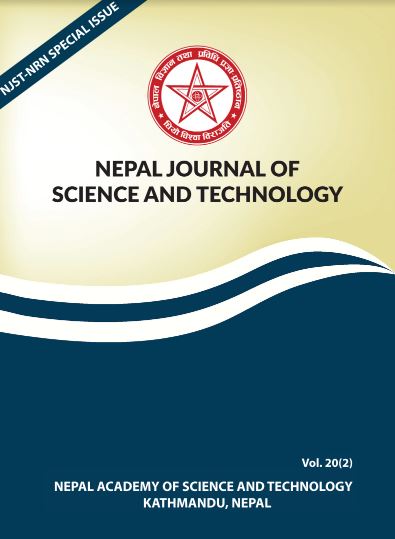COVID-19, A Complex Emotional Well-Being Challenge: A Path to Recovery in Nepal
DOI:
https://doi.org/10.3126/njst.v20i2.45770Keywords:
Mental health, natural disaster, trauma, prevention, stressAbstract
Mental health and emotional well-being remain an urgent civil societies’ global burden. There is an increasing prevalence of mental health and emotional well-being problems in our societies and nations. There are severe implications from these connected with the Coronavirus 2019 (COVID-19). The COVID-19 has produced the gravest disruption to our nations’ health, education, employability, economy, social structure, and mobility.The pandemic has placed humanity in a global emergency with long-term implications. The population’s emotional well-being, including stress related disorders has been severe and likely to be prolonged. The burden of COVID-19 is escalating despite governmental and non-governmental resources, voluntary, religious organisations, and philanthropic efforts. Nations must address the psycho-social conditions of their population as a public health imperative by identifying the peoples’ emotional well-being needs and prioritise strategies to enable their capacity for ‘doing good’ and ‘feeling of goodness’. The Emotional Well-being Institute (EWBI) advocates the significance of ‘feeling goodness’, and that innovative approaches and research initiatives are urgently needed to understand emotional well-being attributes and their impact on overall mental health. Emotional well-being is a broad concept, one that includes several aspects of our everyday lives. There needs to be a multi-dimensional and a whole-of-society approach when addressing the emotional well-being of highly vulnerable societies and nations, such as Nepal.
Downloads
Downloads
Published
How to Cite
Issue
Section
License
Copyright (c) 2021 A. Basseer Jeeawody, Raju Adhikari, Sundram Sivamalai

This work is licensed under a Creative Commons Attribution-NonCommercial 4.0 International License.
Authors retain copyright and grant the journal right of first publication.




